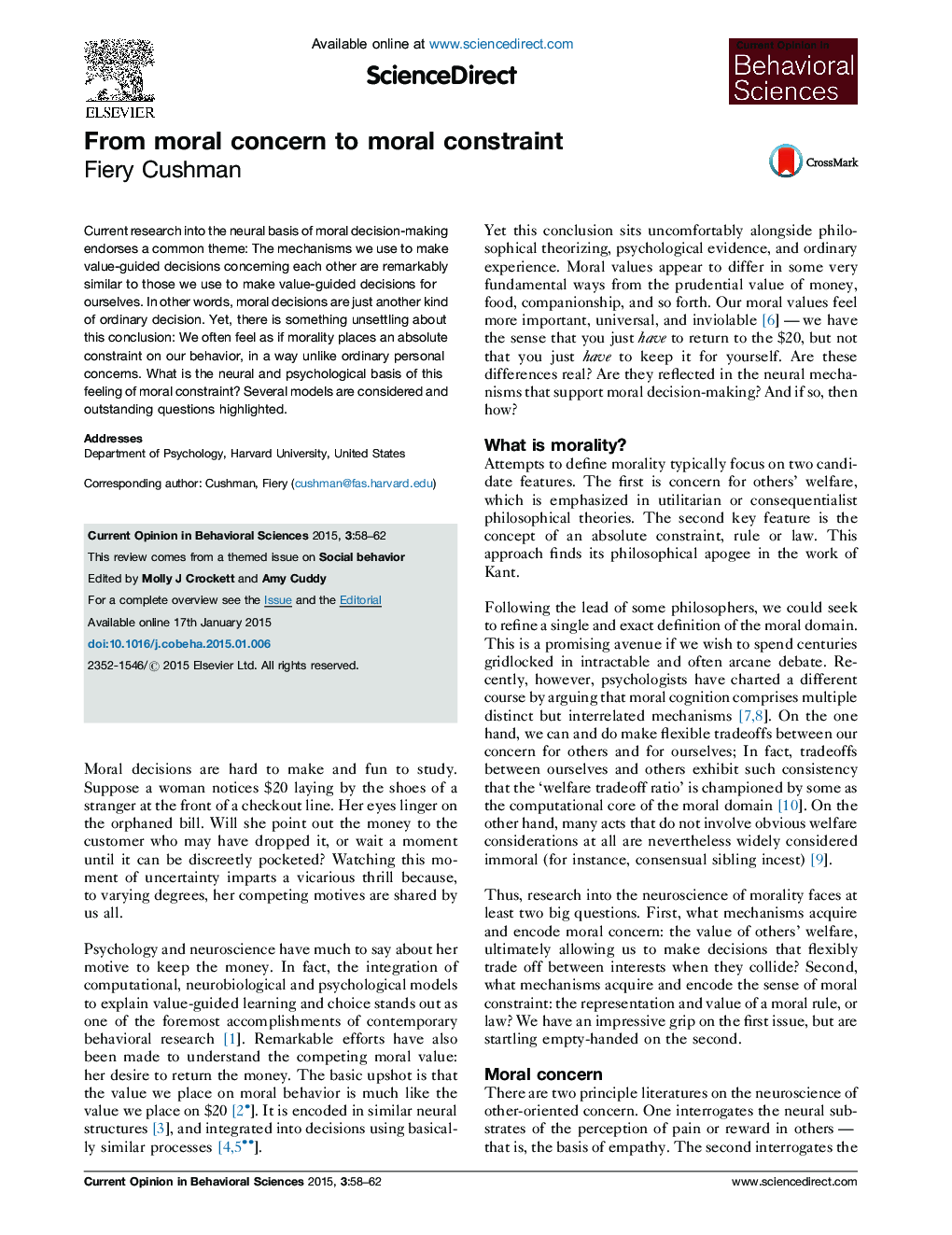| Article ID | Journal | Published Year | Pages | File Type |
|---|---|---|---|---|
| 4316384 | Current Opinion in Behavioral Sciences | 2015 | 5 Pages |
•Morality involves concern for others, and constraints on action.•Our concern for others is processed similarly to our concern for ourselves.•Much less is understood about the neural basis of our sense of ‘constraint’.•Some evidence favors a role for model-free value representation.•Some evidence favors a role for mechanisms of third party evaluation.
Current research into the neural basis of moral decision-making endorses a common theme: The mechanisms we use to make value-guided decisions concerning each other are remarkably similar to those we use to make value-guided decisions for ourselves. In other words, moral decisions are just another kind of ordinary decision. Yet, there is something unsettling about this conclusion: We often feel as if morality places an absolute constraint on our behavior, in a way unlike ordinary personal concerns. What is the neural and psychological basis of this feeling of moral constraint? Several models are considered and outstanding questions highlighted.
